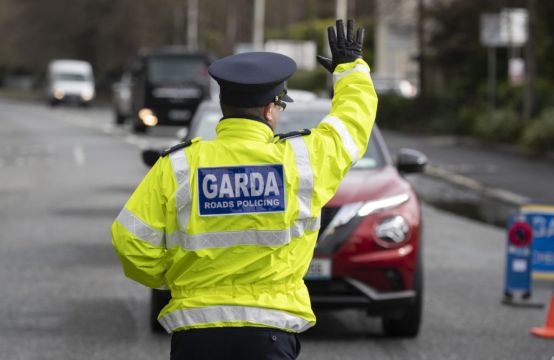Gardaí are not entitled to detain a driver at the roadside for up to an hour to await the result of a drug test, the High Court has ruled.
Mr Justice Garrett Simons said the relevant section of the Road Traffic Act governing the taking of drug test specimens only allows a garda to rely on the result of a roadside test to require a person, who has already been arrested, to permit the taking of a blood specimen at a garda station.
The judge stressed his judgment was only concerned with the taking of a specimen of oral fluid (drug testing) and does not address the taking of a specimen of breath using a roadside breathalyser.
The judge had been asked by the District Court to determine whether Section 10 (4) of the Road Traffic Act 2010 provides a power to a garda on checkpoint duty to make a legal requirement for a driver to remain at the checkpoint for up to an hour after an oral fluid specimen has been provided and until such time as the specimen has been analysed for drugs.
The judge said the answer was that the Act does not provide an express power of roadside detention.
He said it was not necessary to imply such a power in order to avoid an “absurd” interpretation of the 2010 Act.
He was giving his decision in the case of a driver who was stopped at a roadside checkpoint for a drug test and told he was required to remain there for up to an hour.
As it turned out, it only took 18 minutes to get the result of the analysis of the oral specimen the man provided.
The garda who stopped him formed the opinion that the man was under the influence of an intoxicant and he was brought to a Garda Station where he was required to provide a blood sample.
He was prosecuted for drug driving in the District Court where, following legal argument, the judge asked the High Court to determine the question of the implied power of detention at the checkpoint for up to an hour.
The DPP argued a garda was entitled to detain a driver on the roadside for a reasonable period of time, subject to an outer limit of three hours.
Such a "purposive" interpretation of the Act was necessary - the implication of a power of detention - to ensure that the legislation is not rendered “unworkable”, the DPP said.
Mr Justice Simons said the legislation does not appear to envisage that there would be any time lag between providing the specimen and the “indication” of whether drugs are present in the specimen or not.
The legislation does not, for example, refer to an “analysis” of the specimen, still less to the awaiting of the result of any such analysis, he said.
The legislation "seems to contemplate an instantaneous indication of the presence of drugs", he said.
It does not envisage the two-stage process employed in this case, where the specimen was taken and then transferred into a separate machine for analysis, he said.
The only express reference to the “analysis” of a specimen occurs in the context of a specimen of breath, blood or urine, he said.
The legislation also does not expressly stipulate what is to happen in the event that the test is positive.
Crucially, he said, it does not say that a positive test result may be relied upon as giving reasonable cause to arrest a person on suspicion of having committed an offence.
There was also no express power for a garda to detain a person at a checkpoint to await “indication” of whether drugs are present in the oral fluid or not.
This can only happen if the testing apparatus is not immediately available and then the person must wait up to an hour for the apparatus to be brought to the scene, he said.
The judge said due to the novelty of the legal issue raised, he was placing a stay on his order returning the case to the District Court to allow the DPP consider whether she wishes to appeal his decision.







